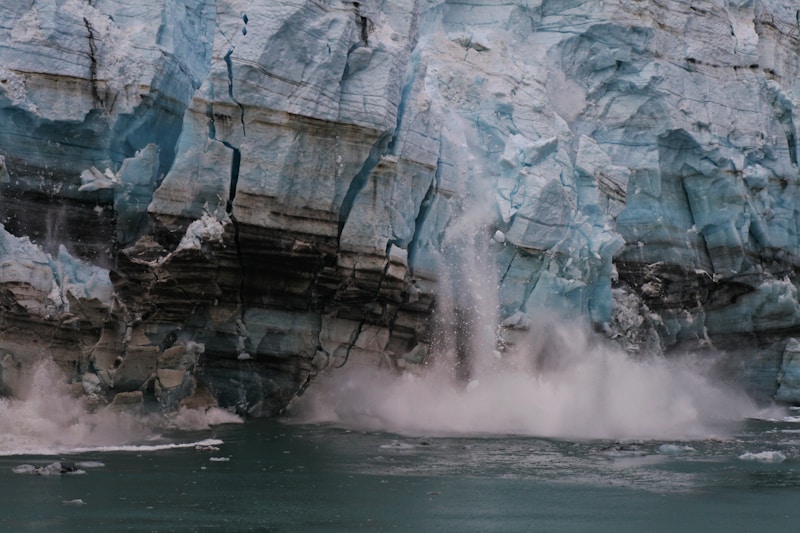Questions and Answers
What does the subtopic of geomorphology primarily study?
Earth's landforms
What does physical geography primarily focus on?
Non-human aspects of Earth
Which of the following is NOT a subtopic of physical geography?
Anthropology
Which subtopic of physical geography studies Earth's atmosphere and climate processes?
Signup and view all the answers
What does hydrology focus on studying?
Signup and view all the answers
How are valleys primarily formed?
Signup and view all the answers
What geological process is responsible for the formation of mountains?
Signup and view all the answers
What is the main factor influencing climate in a region?
Signup and view all the answers
What is the movement of large masses of ice across Earth's surface due to?
Signup and view all the answers
What plays a crucial role in regulating the planet's climate?
Signup and view all the answers
Study Notes
Exploring the Wonders of Physical Geography: Unraveling Earth's Natural Patterns
Geography, a multidisciplinary field that combines natural and social sciences, is a vast and exciting topic that aims to understand our planet's features, processes, and the interplay between its diverse elements. In this article, we'll delve into the intriguing realm of physical geography – the study of Earth's natural landscapes and processes.
What Is Physical Geography?
Physical geography, as the name suggests, focuses on the non-human aspects of Earth. It encompasses an array of subtopics that explore the planet's geological structures, climate, weather, water bodies, and the natural processes that shape and reshape our world. These subtopics include:
- Geology: The study of Earth's rocks, minerals, and fossils, with a focus on the processes that formed the planet and the movement of tectonic plates.
- Hydrology: The study of water on, under, and above Earth's surface, including rivers, lakes, oceans, and glaciers.
- Climatology: The study of Earth's climate, its variability, and its impact on life and the environment.
- Meteorology: The study of Earth's atmosphere, weather, and climate processes.
- Geomorphology: The study of Earth's landforms, their creation, and their modification.
Earth's Landforms: An Overview
Geomorphology is a subtopic that delves into the formation and modification of Earth's landforms, such as mountains, valleys, plains, and coastlines. These landforms are formed through various geological processes, including erosion, weathering, and uplift.
- Mountains: Formed through tectonic uplift and the erosional processes that shape their surfaces over time.
- Valleys: Formed as rivers and glaciers erode the landscape, creating channels and depressions.
- Plains: Accumulations of sediment that have been deposited and compacted over time, such as deserts, grasslands, and floodplains.
- Coastlines: The interface between land and sea, formed through the erosion of the coast by waves, storms, and currents.
Earth's Water Bodies: A Vital Resource
Another essential subtopic of physical geography is hydrology, which focuses on Earth's water bodies and their interplay with the environment.
- Rivers: The major drainage routes on Earth's surface, formed through the erosional action of water.
- Lakes: Bodies of water enclosed by land, formed through the deposition of sediment or the melting of glaciers.
- Oceans: The largest bodies of water on Earth, covering over 71% of its surface and playing a crucial role in regulating the planet's climate.
- Glaciers: Large masses of ice that move across Earth's surface due to the force of gravity.
Earth's Atmosphere: The Weather Machine
Meteorology, a vital subtopic in physical geography, focuses on the behavior of Earth's atmosphere, weather, and climate processes.
- Weather: The short-term atmospheric conditions that we experience, such as rain, snow, and wind.
- Climate: The long-term average weather patterns of a region, influenced by factors such as latitude, elevation, and ocean currents.
- Atmospheric processes: The various mechanisms that drive Earth's weather and climate, such as evaporation, condensation, and radiation.
These subtopics provide a wealth of information about Earth's natural processes and the interplay between its various components. By studying physical geography, we can not only further our understanding of the world around us but also gain valuable insights into how to protect and conserve our planet's resources for future generations.
In conclusion, physical geography is a fascinating field that explores Earth's natural landscapes and processes, providing us with a deeper appreciation of our planet and its complex systems. Through the study of geology, hydrology, climatology, meteorology, and geomorphology, we can develop a more profound understanding of our world and its potential for change. So, the next time you witness the majesty of a mountain, marvel at the power of a river, or watch the clouds roll by, remember that physical geography is the discipline that unravels the mysteries of Earth's natural beauty.
Studying That Suits You
Use AI to generate personalized quizzes and flashcards to suit your learning preferences.
Description
Test your knowledge about the fascinating aspects of physical geography, including Earth's landforms, water bodies, climate, and natural processes. Learn about geology, hydrology, climatology, meteorology, and geomorphology, and gain valuable insights into the intricate systems of our planet.




